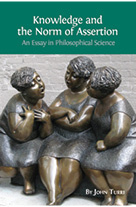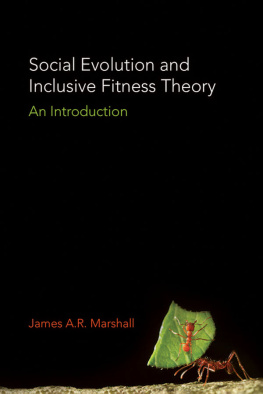ON SOCIAL EVOLUTION
Tang provides a coherent and systematic exploration of social evolution as a phenomenon and as a paradigm. He critically builds on existing discussions on social evolution, while drawing from a wide range of disciplines, including archaeology, evolutionary anthropology, sociology, economics, political science, the philosophy of social sciences, and evolutionary biology.
Clarifying the relationship between biological evolution and social evolution, Tang lays bare the ontological and epistemological principles of the social evolutionary paradigm. He also presents operational principles and tools for deploying this paradigm to understand empirical puzzles about human society.
This is a vital resource for students, practitioners, and philosophers of all social sciences.
Shiping Tang is Fudan Distinguished Professor and Dr. Seaker Chan Chair Professor at the School of International Relations and Public Affairs, Fudan University, China. He also holds a Chang-Jiang/Cheung Kong Scholar Distinguished Professorship from the Chinese Ministry of Education. His earlier book, The Social Evolution of International Politics (2013), received the International Studies Associations Annual Best Book Award in 2015.
Shiping Tangs insightful and critical review of the previous evolutionary arguments in the social sciences is a must read for scholars interested in going beyond generalized Darwinism and moving toward adopting generalized evolutionism. His focus on niche construction and human agency in reshaping environments represents a major contribution to the study of social evolution.
Howard E. Aldrich, Kenan Professor of Sociology, University of North Carolina at Chapel Hill, USA
For much too long social science has neglected evolutionary theories, which are both powerful and appropriate to many of our puzzles. In a systematic treatment that is both nuanced and stimulating, Shiping Tang puts the evolutionary approach through its paces and shows how selection, variance, and inheritance operate to explain both macro and micro social developments.
Robert Jervis, Aldai E. Stevenson Professor of International Politics, Columbia University, and author of System Effects: Complexity in Political and Social Life.
Deeply researched and powerfully argued, On Social Evolution posits that evolutionism triumphs over all other explanations of the natural and the social world. Shiping Tang has succeeded marvelously in developing and defending theoretically this bold claim. All of us should read and wrestle with this challenging and outstanding book.
Peter J. Katzenstein, Walter S. Carpenter, Jr. Professor of International Studies, Cornell University, USA
First published 2020
by Routledge
2 Park Square, Milton Park, Abingdon, Oxon OX14 4RN
and by Routledge
52 Vanderbilt Avenue, New York, NY 10017
Routledge is an imprint of the Taylor & Francis Group, an informa business
2020 Shiping Tang
The right of Shiping Tang to be identified as author of this work has been asserted by him in accordance with sections 77 and 78 of the Copyright, Designs and Patents Act 1988.
All rights reserved. No part of this book may be reprinted or reproduced or utilised in any form or by any electronic, mechanical, or other means, now known or hereafter invented, including photocopying and recording, or in any information storage or retrieval system, without permission in writing from the publishers.
Trademark notice: Product or corporate names may be trademarks or registered trademarks and are used only for identification and explanation without intent to infringe.
British Library Cataloguing-in-Publication Data
A catalogue record for this book is available from the British Library
Library of Congress Cataloging-in-Publication Data
Names: Tang, Shiping, 1967- author.
Title: On social evolution: phenomenon and paradigm / Shiping Tang.
Description: First Edition. | New York: Routledge, 2020. |
Includes bibliographical references and index.
Identifiers: LCCN 2019050761 (print) | LCCN 2019050762 (ebook) |
ISBN 9780367436261 (hardback) | ISBN 9780367436278 (paperback) |
ISBN 9781003004653 (ebook)
Subjects: LCSH: Social evolution.
Classification: LCC HM626 .T36 2020 (print) | LCC HM626 (ebook) |
DDC 303.4dc23
LC record available at https://lccn.loc.gov/2019050761
LC ebook record available at https://lccn.loc.gov/2019050762
ISBN: 978-0-367-43626-1 (hbk)
ISBN: 978-0-367-43627-8 (pbk)
ISBN: 978-1-003-00465-3 (ebk)
Typeset in Bembo
by Apex CoVantage, LLC
In 1959, the centennial of Darwins On the Origins of Species, H. J. Muller (Nobel Prize winner in physiology and medicine) lamented: one hundred years without Darwinism are enough. Mullers lamentation rings even more true in social sciences. More than 150 years after On the Origin of Species, most social scientists remain ambivalent, if not hostile, toward applying an evolutionary approach to the understanding of human society. This apologetic mentality for being a social evolutionist, I contend, must be resolutely rejected, if the human society is to be adequately understood. Social scientists should unabashedly embrace evolutionary thinking and become social evolutionist, for nothing in human society makes sense unless in the light of Social Evolution, to paraphrase Dobzhansky (1973).
Many giants of social sciences (James M. Baldwin, Donald Campbell, Alfred Marshall, Karl Popper, and Thorstein Veblen, to name just a few) had attempted to steer social sciences into a more evolutionary path before. They shared a fundamental conviction: The complex system called human society is an evolutionary system. Consequently, social sciences must be evolutionary sciences. I share their conviction. Unfortunately, their understandings of biological and social evolution had often been superficial, incomplete, and sometimes outright wrong. As a result, much of the earlier evolutionary literature on human society had been misleading, sometimes disastrously, as embodied by racism and social Darwinism. A key cause behind this sorry state has been that there has not been a systematic statement on what social evolution is, as a phenomenon and as a paradigm.
This book fills this lacuna by offering such a systematic statement on what social evolution is as a phenomenon and as a paradigm, thus laying part of the foundation for social sciences to productively become genuinely social evolutionary.
Elsewhere, I show that when stripped to the bare bone, there are only 11 foundational paradigms in social sciences, and all the major schools or approaches in social sciences have been different combinations of these foundational paradigms (Tang 2011b). I further argue that an evolutionary approachor more precisely, the social evolution paradigm (hereafter, SEP)is the most powerful of them all: SEP is the ultimate paradigm of social science.
In my other works (Tang 2008a, 2010a, 2010e, 2011a, 2013, 2016; Tang & Long 2012), I have deployed SEP to understand different aspects of human society. I hope that this book, together with other social scientists works that deploy SEP, can help end social sciences years without sound social evolutionism, after more than 160 years.









